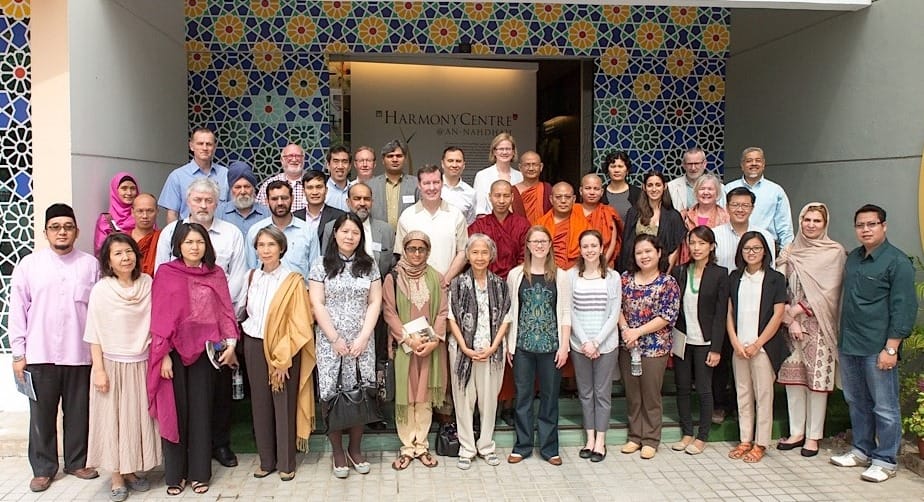Religion, Security & Citizenship: Singapore Conference Report

Overview: The Institute for Global Engagement (IGE) builds sustainable environments for religious freedom worldwide through local partners. In many countries, religious freedom is restricted due to security concerns. IGE engages both the government and grassroots, bringing key actors from these two levels together into a safe space to explore how if religion is part of the problem, it could also be part of the solution. Towards this end, IGE and the Wee Kim Wee Center at Singapore Management University (SMU) convened a “Religion, Security & Citizenship” workshop in Singapore from 22-26 February 2015. IGE brought together over 40 participants consisting of scholars, government officials, and religious leaders hailing from Cambodia, China, Indonesia, Kazakhstan, Kyrgyzstan, Malaysia, Myanmar, Norway, Pakistan, Singapore, United Kingdom, United States, Uzbekistan, and Vietnam, thus fostering and reinforcing intra- and inter-regional networks of resiliency. This workshop was a culmination of an intentional 3.5-year strategy to build relationships of trust, resulting in the development of a common training program reflecting the wisdom of a wide variety of countries and cultures.
The program kicked off with a two-day senior policy seminar on “Building Resilient Individuals and Institutions.” The seminar explored how mutual respect and mutual reliance could be built across ethnic, gender, economic, political, and religious divides, thus contributing to a civil, stable, and flourishing society. Furthermore, participants discussed how to implement this in different geographic contexts.
Next, participants embarked on a study tour to learn more about the Singaporean model of building social cohesion in a multiethnic and multifaith society. Visits were made to the Harmony Center at An-Nahdhah Mosque, OnePeople.sg, Inter-Religious Organization, and the Sri Mariamman Hindu temple.
Afterwards, a public symposium focused on topics related to religion and security, education, social development, and terrorism. Participants offered comparative perspectives from Central, South, and Southeast Asia. Most speakers were part of IGE’s “alumni network,” having previously participated in IGE’s “Religion, Security & Citizenship” conferences in China (2011), Myanmar (2013), Kazakhstan (2013), Kyrgyzstan (2014) and Nepal (2014).
Finally, a roundtable on “Religion, Women, Security, & Citizenship” focused specifically on the challenges women faced during violent conflict as well as the role that religious women could play in peace building and countering violent extremism. Participants also provided feedback on the development of a Religion, Gender, & Security training program that would build the capacity of women of faith to play a greater role in policymaking.
Looking Ahead: According to IGE’s theory of change, already planned programs for the future were further discussed among the relevant participants present. These programs include:
-
Singapore: ASEAN Religion & Rule of Law training program (2016); Religion & Business training program (under development);
- Myanmar: Religion & Rule of Law training program (2015);
- Laos: Peace Building Team training workshops (2015);
- Vietnam: Religion & Citizenship dialogues, Conflict Mediation Skills workshop, Religion & Rule of Law training program, and Diplomatic Academy of Vietnam training (all activities occurring in 2015); and,
- China: Sino-US Counterterrorism Symposium (2015).